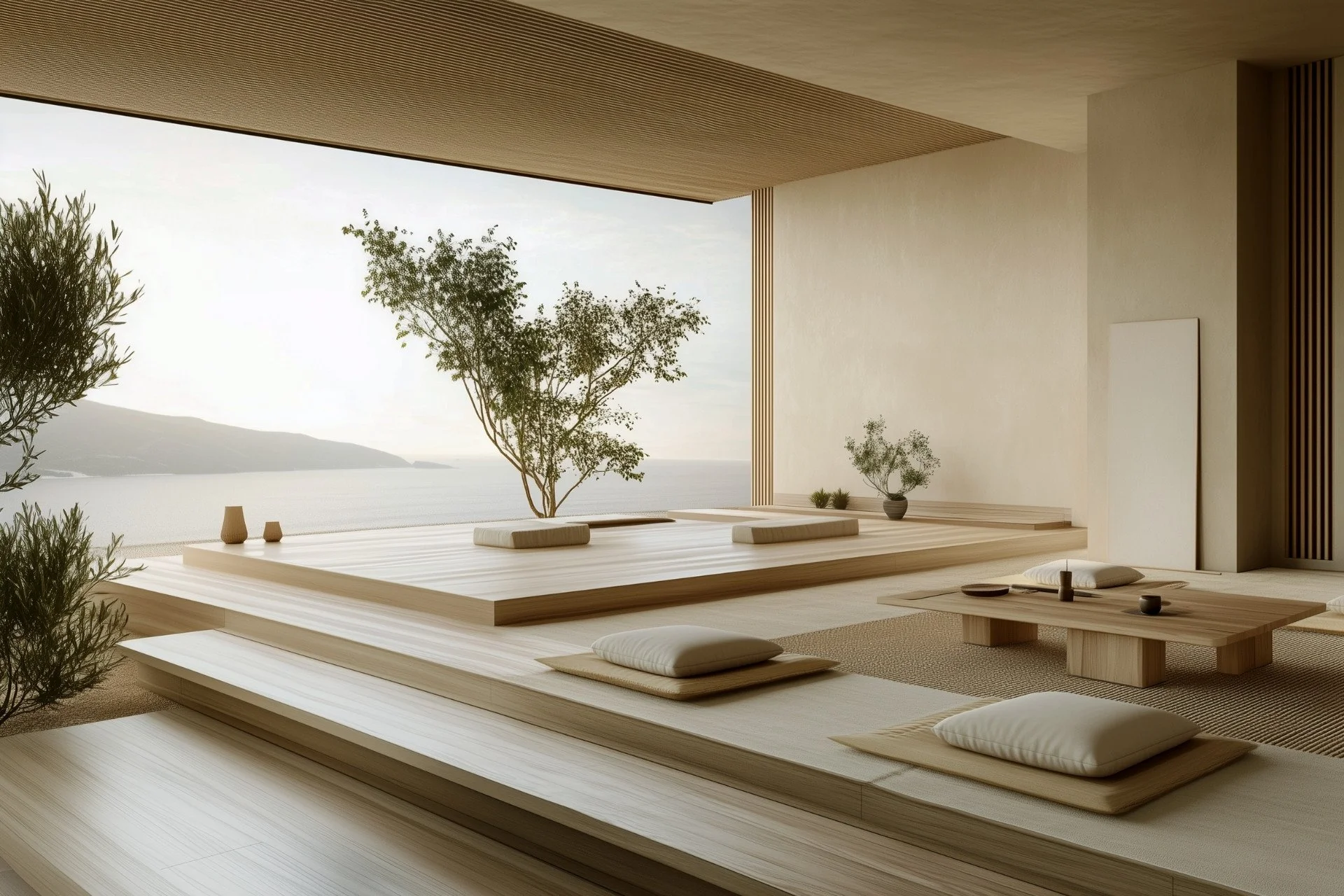Sustainable Architecture: Key Insights from Marbella
Sustainability in architecture has evolved from being a trend to becoming a global imperative. In cities like Marbella, where the natural landscape meets modern luxury, there is a growing demand for building practices that respect the environment and enhance human well-being. Sustainable architecture is not only about reducing environmental impact; it's about creating spaces that are healthier, more efficient, and more harmonious for the people who live in them.
At K.alma - Architecture & Lifestyle, we believe that true luxury lies in balance. Our projects integrate sustainable principles with contemporary aesthetics, resulting in buildings that are both environmentally responsible and emotionally enriching.
What is sustainable architecture?
Sustainable architecture is a holistic approach to designing and constructing buildings that are energy-efficient, resource-conscious, and environmentally friendly. It considers the full life cycle of a structure—from materials and construction methods to energy consumption, waste management, and eventual reuse or recycling.
Key elements include:
Energy efficiency: reducing reliance on fossil fuels
Material sustainability: using recyclable, renewable, and low-impact materials
Integration with nature: blending architecture with the natural landscape
Health and comfort: ensuring high indoor air quality and thermal comfort
Longevity: designing for durability and adaptability
Why Marbella is ideal for sustainable architecture
Marbella's climate, location, and lifestyle offer the perfect backdrop for sustainable design. With over 300 days of sunshine a year, it is ideally suited for passive solar design and renewable energy technologies. The Mediterranean Sea and surrounding mountains provide stunning views that naturally encourage biophilic design principles.
Advantages of Marbella's environment include:
Solar potential: ideal for photovoltaic panels and thermal solar energy
Mild winters and breezy summers: enabling natural ventilation strategies
Local materials: access to limestone, clay, wood, and other regional materials
Moreover, clients in the area increasingly seek homes and commercial spaces that reflect their values—particularly regarding sustainability, wellness, and timeless design.
Core principles of sustainable architecture
1. Bioclimatic design
A bioclimatic approach means adapting the building to its natural environment. We study the sun's path, prevailing winds, and seasonal changes to orient buildings for optimal energy performance. Shading, thermal mass, and cross-ventilation reduce the need for artificial heating or cooling.
2. Eco-friendly materials
We prioritize materials with low embodied energy and high durability. These include:
Natural insulation: cork, cellulose, sheep wool
FSC-certified timber
Non-toxic paints and mineral plasters
Recycled stone and metal elements
3. Renewable energy systems
Energy-efficient systems are fundamental to reducing carbon footprint. We incorporate:
Photovoltaic panels for electricity
Solar thermal panels for hot water
Aerothermal heat pumps for heating and cooling
LED lighting with daylight sensors
4. Water conservation
Water is a precious resource, especially in the Mediterranean climate. We design for:
Rainwater harvesting systems
Greywater recycling for irrigation
Xeriscaping with native plants
Low-flow fixtures and smart irrigation
5. Indoor environmental quality
Sustainability also involves the health and comfort of occupants. We ensure:
Natural daylight and glare control
Thermal and acoustic insulation
Healthy ventilation and air purification systems
Use of VOC-free materials to avoid indoor pollution
Design that connects with nature
Sustainable architecture is deeply rooted in the connection between human beings and the natural world. At K.alma, we design spaces that extend beyond the physical structure. Our projects often include:
Courtyards and atriums that promote cross-breezes
Rooftop gardens and green walls that support biodiversity
Outdoor living areas that blur the boundaries between inside and out
Orientation and window placement that maximize views and daylight
Case studies from Marbella
We have worked on numerous residential and commercial projects across Marbella that embody the principles of sustainable architecture:
A contemporary hillside villa with passive solar design, green roof, and rainwater reuse system
A renovation project where 70% of materials were reclaimed or recycled
A wellness center integrating solar energy, thermal insulation, and natural finishes
Each project demonstrates that environmental responsibility and high-end design are not mutually exclusive. In fact, they enhance one another.
The role of technology and innovation
New technologies are accelerating the possibilities of sustainable architecture:
Smart home systems that monitor and reduce energy consumption
Energy modeling software for pre-construction optimization
3D-printed components made from recycled materials
Life cycle analysis tools to evaluate long-term environmental impact
At K.alma, we continuously explore new tools and innovations to deliver better performance, aesthetics, and sustainability.
Looking ahead: regenerative architecture
While sustainability seeks to minimize harm, regenerative architecture aims to give back to the environment. This next phase includes:
Enhancing ecosystems
Sequestering carbon
Creating buildings that produce more energy than they consume
Designing communities that support social and ecological resilience
We are currently working on pilot projects that include:
Materials that capture CO2
Zero-energy homes
Nature-integrated spaces for physical and mental well-being
Conclusion
Sustainable architecture is not just about green roofs or solar panels. It's a comprehensive philosophy that encompasses environmental stewardship, design excellence, and human-centered thinking. Marbella, with its natural beauty and climate, offers the perfect stage for this architectural evolution.
At K.alma, we believe that the spaces we build today must contribute positively to the planet and the lives they host. Sustainable architecture isn't a compromise—it's the new definition of luxury.
"Building with awareness is living with respect."
📧 Want your next Marbella project to be sustainable and extraordinary? Contact us today and discover how we can help.

